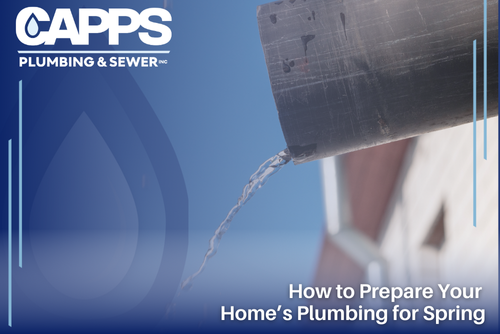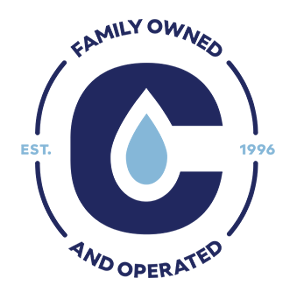Spring plumbing maintenance brings together simple checks you can do yourself and help from professionals. By knowing what to look for, you can protect your home from leaks, water damage, and other plumbing problems. Just a bit of maintenance can help keep your plumbing system working well and lasting longer.
This guide will help you find the important areas that need care. It’ll cover how to check for leaks and discuss when to call a professional. You will get the knowledge and steps you need to make sure your plumbing is prepared for the upcoming season.
Check for Leaks in All Exposed Pipes
Start by checking all the pipes you can see in your basement, crawl spaces, and under your sinks. Look for any water stains, dripping, or corrosion. A small leak can turn into a big problem if you don’t fix it. It can cause water damage, mold growth, and higher water bills. Pay extra attention to pipe joints and connections because they often leak.
If you find a leak, you need to find out where it’s coming from and how bad it is. Some leaks just need a simple tightening of a connection, while others may need a skilled plumber. No matter how big the leak is, acting quickly is important. This will help stop more damage and keep your water supply safe.
Just remember, a tiny leak now can quickly become a big headache later.
Inspect Faucets and Showerheads for Drips or Signs of Corrosion
It’s important to check your faucets and showerheads, along with the visible pipes. Ongoing drips may seem small, but they can waste a lot of water over time. This can lead to higher water bills and stress your plumbing system. Also, mineral buildup and corrosion can gather in faucet aerators and showerheads. This can block water flow and lower efficiency.
Look for signs of mineral buildup, like white crust on the edges or slow water flow. Cleaning or replacing aerators and showerheads is easy and can boost water efficiency and fixture performance. While you check your fixtures, look for any rust or corrosion. These could suggest a bigger problem in your plumbing system.
Clean and Clear All Home Drains and Gutters
Spring cleaning should also include your drains and gutters. Cleaning these important areas stops clogs and helps water flow, which protects your home from water damage. During winter, leaves, twigs, and dirt can gather in your gutters. This can block water and cause leaks, mold, and damage to your foundation.
Inside your home, pay attention to these important spots:
- Kitchen sinks: Food leftovers and grease can build up.
- Bathroom sinks: Hair and soap commonly cause clogs.
- Shower drains: Regularly remove hair to keep it draining well.
- Bathtubs: Soap, hair, and even toys can clog these drains.
Cleaning your gutters and drains often can stop these problems before they turn into big plumbing issues that need a plumber. For tough clogs, consider using a plumber’s snake. Boiling water or a mix of baking soda and vinegar can also be used as a natural cleaning method.
Test the Sump Pump for Proper Operation
Your sump pump is essential for keeping your basement dry, especially when the snow is melting in spring. To make sure it works well, pour a few buckets of water into the sump pit. Check if the sump pump turns on and effectively removes the water. If you hear any strange noises or if the pump doesn’t work, you need to call a plumber right away to fix the problem.
Think about getting a backup sump pump system. This add-on is helpful if you live where there is a lot of rain or if the power goes out often. A backup system gives you extra safety. This way, your basement can stay dry even if the main sump pump fails or loses power during a storm.
It’s important to have a working sump pump to keep your basement dry and safe. Regular checks and maintenance will help ensure it is always ready to protect your home.
Schedule a Professional Plumbing Inspection
While DIY maintenance is essential, scheduling a professional plumbing inspection is a wise investment, especially in the spring. An experienced plumber can identify subtle signs of trouble that homeowners often miss. They can also assess the overall health of your system, providing valuable insights and recommendations to improve its performance and efficiency.
A professional plumber can offer expert advice on necessary repairs or replacements, ensuring your plumbing system operates flawlessly and meets your home’s current and future needs. Early detection often prevents major issues and extends the life of your plumbing system, ultimately saving you money in the long run.
Prepare Your Pipes for the Spring
Regular plumbing maintenance in spring is important to avoid expensive repairs later. Checking for leaks in visible pipes and testing the sump pump can help you prevent water damage and other problems. It’s smart to have a professional inspect your plumbing. This way, you can find out about issues before they get worse. Follow these important maintenance tips this spring to keep your plumbing in good shape. If you need help or have questions about preparing your plumbing for the spring, contact Capps Plumbing today.




